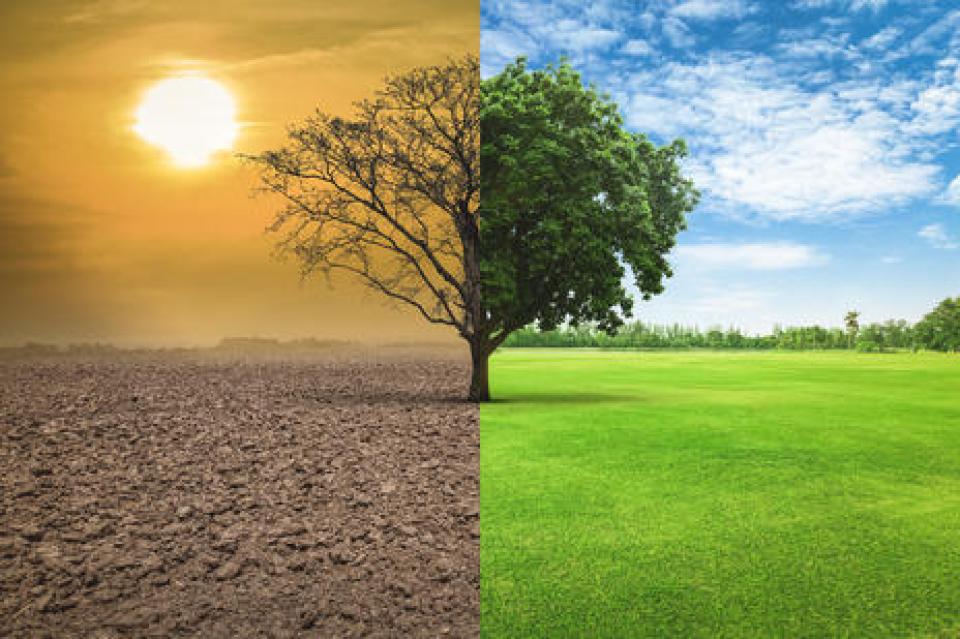
Research Newsletter - Issue 65: Spotlight
DCU Centre for Climate & Society
Climate change is no longer a problem of the physical sciences alone: it is a policy problem, it is a communications problem, it is a media problem, an ethics problem, an education problem, a corporate problem. In fact, it is a problem that every area of society will have to respond to.
But how to talk to, reach, enlist, communicate with, design policies for such a wide disparity of social arenas? That, in broad strokes, is the research agenda of DCU’s newest research centre.
The DCU Centre for Climate & Society was approved as a university-designated research centre earlier this year. The centre’s focus is on bringing a social science and humanities perspective to the challenges of climate change.
The new centre builds on the successful MSc in Climate Change: Policy, Media & Society, which also foregrounds research in societal arenas such as policy, politics, governance, media, education, civil society, and popular culture.
The centre director is Dr Dave Robbins from the School of Communications, and there are two co-directors: Prof Pat Brereton (Communications), and Dr Diarmuid Torney (Law & Government).
The centre members represent a broad range of research interests and disciplines. The Schools of History & Geography, Communications, Law & Government, DCU Business School, DCU Institute of Education are represented among the membership, and the centre welcomes new members interested in this broad research agenda.

Responding to the climate change challenges
So what does a social science and humanities approach to climate change look like in practice? Very broadly, it involves ways of thinking and talking about climate change that are relevant to the range of social actors who will be involved in climate action.
On a more practical level, it means carrying out research that helps us understand how societies have responded to the challenges of climate change, and what factors have helped or hindered the ambition of these responses.
For example, Dr Diarmuid Torney was a member of the expert advisory group to the Citizens’ Assembly for its deliberations on climate change. Diarmuid collaborated with Prof Pat Brereton and others on a subsequent research project funded by the Environmental Protection Agency to learn lessons from the Citizens' Assembly process. Building on that work, Diarmuid has helped to establish a new international Knowledge Network on Climate Assemblies, supported by the European Climate Foundation.
This is a good example of how social science expertise can be applied, and of how expertise in policy evaluation and communications can combine to provide valuable insights into Ireland’s climate discourses. This is the kind of collaborative research the centre aims to engage in.
The new centre has four pillars:
The first is research. The centre aims to lead funding bids, and to collaborate with other bid leaders, to investigate and explore societal responses to the challenges of climate change.
The second is education. The centre will build on the success of the MSc in Climate Change, and engage in other educational activities relating to sustainability, media literary, environmental ethics, and carbon literacy, among others.
The third is engagement. Members are already highly networked and active in the climate and environmental space, and have worked as individual researchers or consultants with a range of bodies, including the Department of Climate Action, the Department of the Taoiseach, the Broadcasting Authority of Ireland, local authorities, businesses, and NGOs. The centre aims to consolidate, build on, and scale up these engagements.
The fourth is journalism. The centre is working towards the establishment of an environmental news service aimed at regional and local newspapers and radio stations. The media sector is under economic pressure, and specialist environmental coverage is expensive to produce. The news service will be produced by journalism students under the leadership of a senior professional journalist.
If you are interested in the work of the centre, please contact Dave Robbins at David.robbins@dcu.ie.
